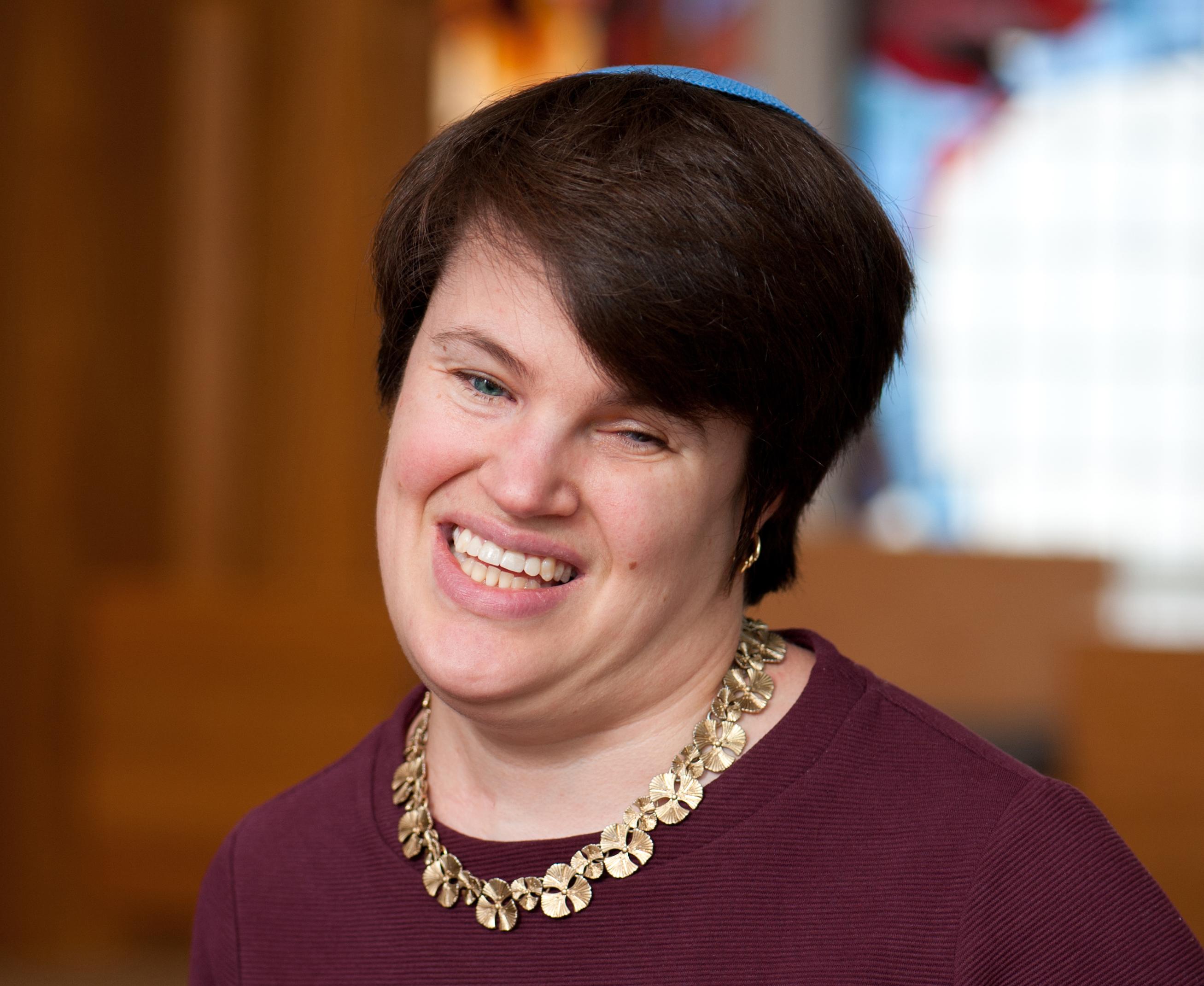Life of Service

Former religion major Lauren Tuchman ’08 credits Dickinson’s liberal arts education with equipping her with the skills essential to her work as a rabbi and educator. As the first blind woman ordained to the rabbinate, she helps people to navigate their spirituality and personal identity in an ever-changing and tumultuous world.
Can you speak to how Dickinson’s useful liberal-arts education helped you along your career path?
Dickinson’s useful liberal-arts approach equipped me with the critical thinking and analytical skills so essential to the work I do as a rabbi and educator. In a world which prides itself on simplicity and 30-second sound bites, I am grateful to have been educated at Dickinson, where the emphasis was always placed on asking good questions, source criticism and a willingness to be expansive in thought.
What was your favorite activity/organization at Dickinson?
What jumps out as a great memory from your time at Dickinson?
I enjoyed attending Shabbat dinners, services and song sessions at the Asbell Center for Jewish Life. I also enjoyed being involved with the Women’s & Gender Resource Center and The Dickinsonian.
How do you stay involved with/support Dickinson? Why do you think it’s important?
I remain involved primarily through my connections to Hillel, the religion department (proud religion major!) and the Asbell Center for Jewish Life. I believe it is important to remain involved because I want to give back to the community that gave me so much. I would not be the rabbi I am today were it not for the outsized impact Hillel had on my burgeoning Jewish identity.
How did you get interested in your work, and what about it excites you most?
My journey to the rabbinate was a long, winding and complicated one. Though I was always animated by the academic study of religion, I also wanted to add a direct service component to it, working with people individually and in groups. As a noncongregational rabbi, I am blessed to be able to do a lot of teaching as well as providing spiritual and pastoral care to folks from many walks of life. I am most excited by the individual impact I can have. If you impact one person, you’ve done good work in this world.
What does your current work entail?
My rabbinate is multifaceted. I teach adult education classes about Jewish thought and Torah in the Washington, D.C., area where I am currently based. I serve as the yoetzet ruach/spiritual advisor for Avodah, the Jewish service corps in D.C. I also do a lot of scholar-in-residence speaking engagements and Shabbatonim.
What is the most challenging part of your work?
I would say the most challenging aspect of my work is being a spiritual leader in the world in which we live, in which so much of what was foundational has become unstable. Helping folks navigate a shifting sense of spirituality and personal identity when combined with the seemingly relentless news cycle is a herculean endeavor.
What comes to mind as something unforgettable that you’ve done since you graduated?
I gave the opening dvar Torah—words of Torah—at Jewish Disability Advocacy Day in Washington, D.C., in front of numerous legislators and advocates. Oh, and my ordination day marked a historic first—the first ordination of a blind woman to the rabbinate!
If you could have dinner with anyone famous, living or dead, who would it be?
Ruth Bader Ginsburg (RBG)!
You just built a time machine: where and when do you go?
I’d love to see what the world is like a century from now in the U.S.
If you could change one thing about your life, what would it be?
I believe that life presents us with many opportunities for growth, both joyful and challenging. Though my journey in rabbinical school and before was filled with many challenges and valleys, all of that made me the sensitive spiritual leader I am today. I do wish I was not the first blind woman in my field, though I am grateful to know I will not be the last!
TAKE THE NEXT STEPS
Published August 8, 2019